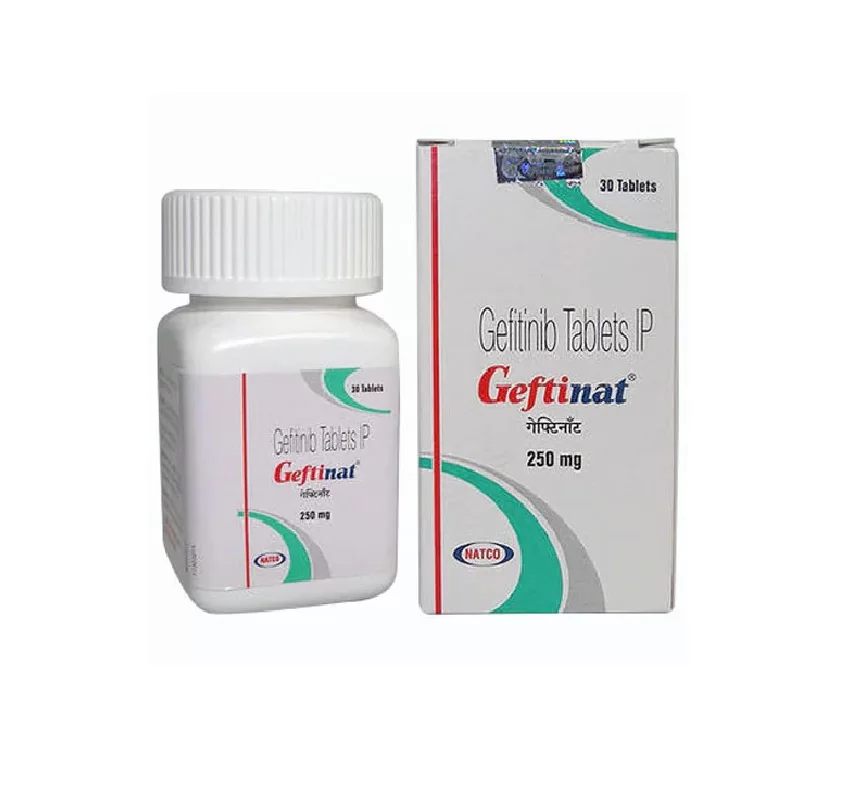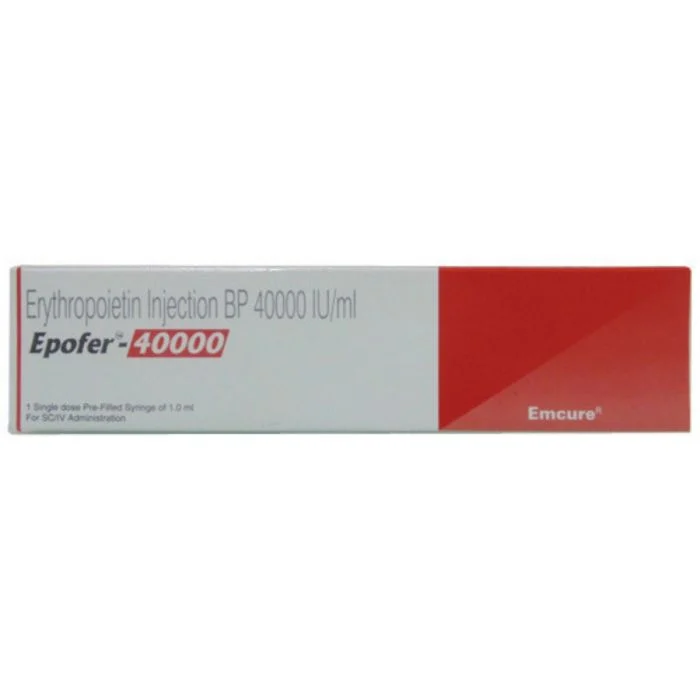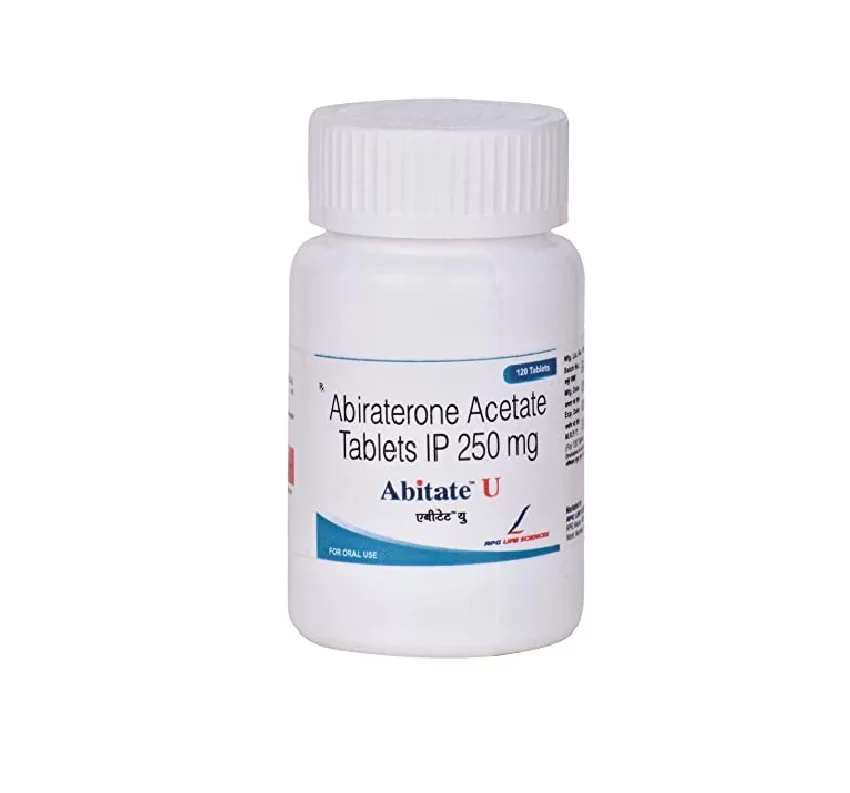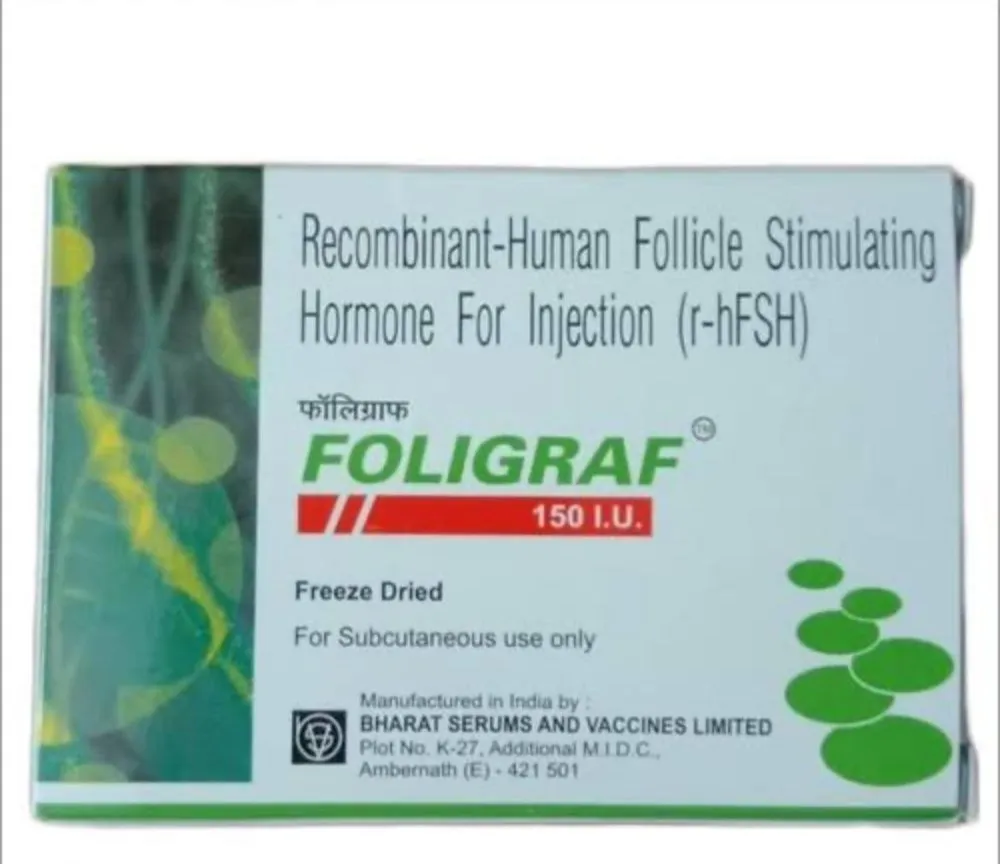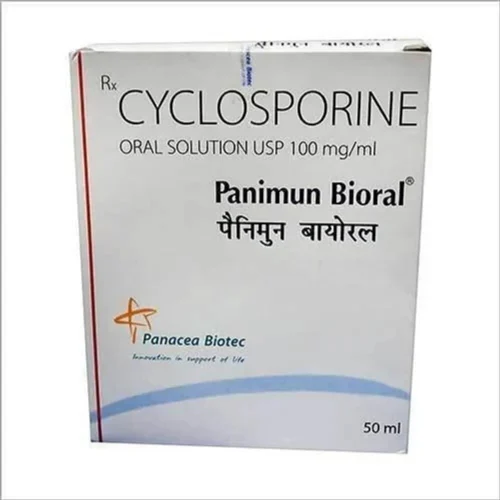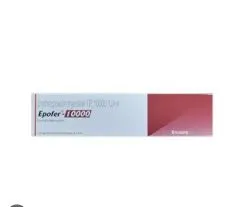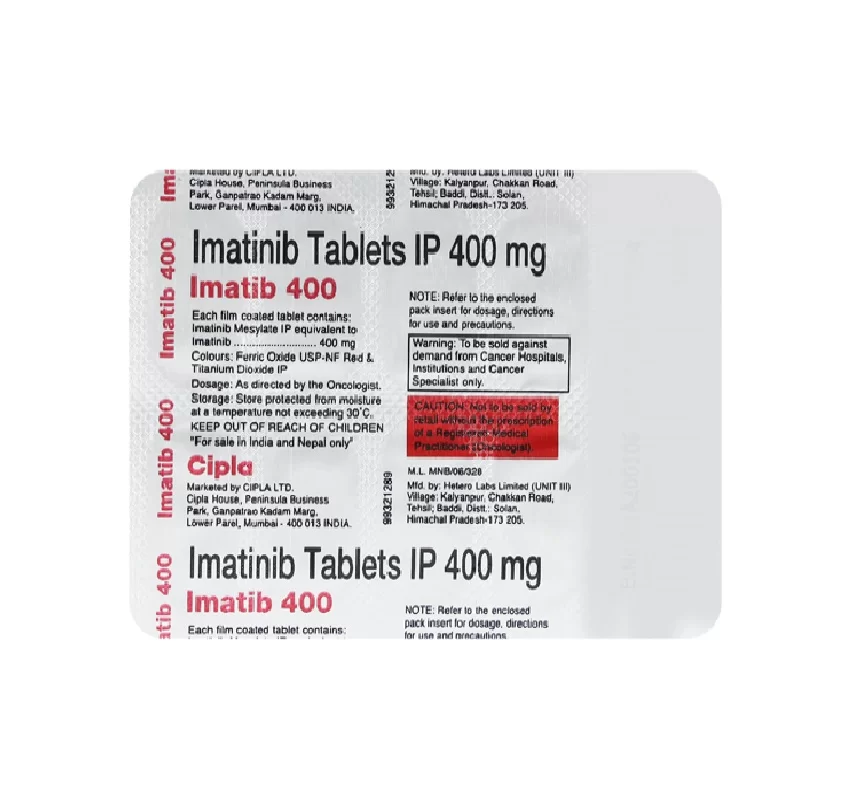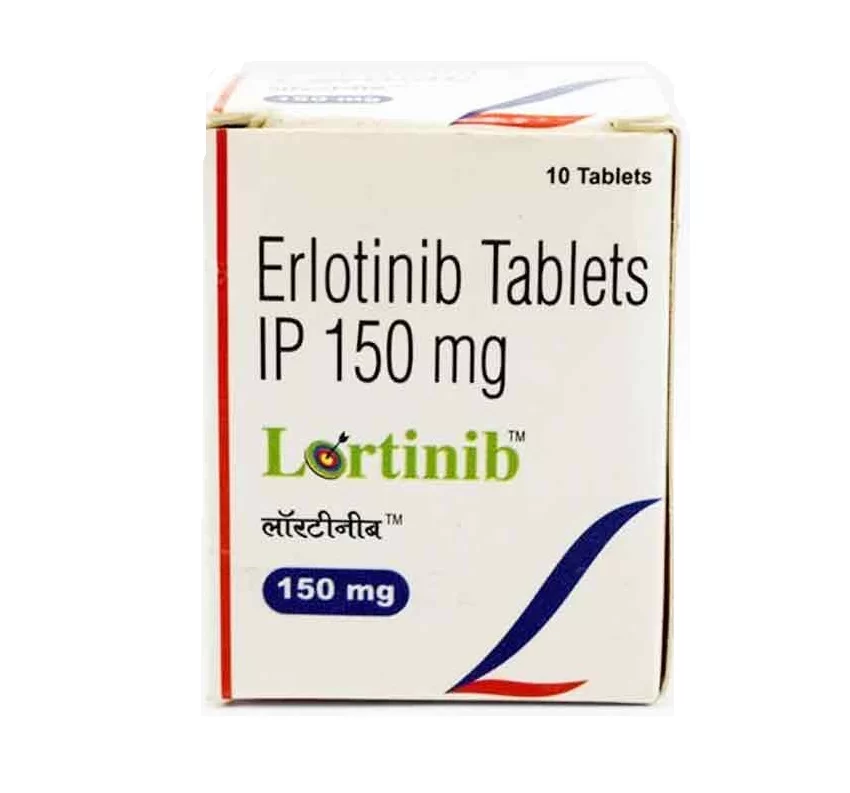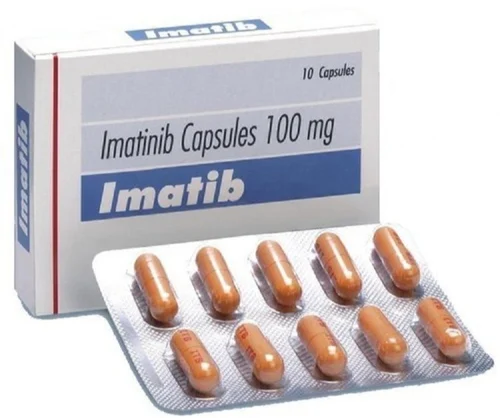Description
GEFTINAT 250mg
Gefitinib, a member of the class of medications, is present in the GEFTINAT 250MG. Non-small cell lung cancer is the most prevalent type of lung cancer that begins in the lung tissues. It then grows slowly before spreading to other areas of the body. This is typically characterized by symptoms like chest pain or discomfort, a persistent cough, difficulty breathing, exhaustion, and difficulty swallowing. It can be diagnosed as any type of lung cancer, including squamous cell carcinoma and large cell carcinoma (cancer that can occur in any part of the lung).
How does Geftinat 250mg work
When the EGFR receives a signal, it changes other proteins in a chemical reaction. Which then sends the signal into the cell. The EGFR’s capacity to signal cells to divide and expand depends on the tyrosine kinase domain’s capacity to change other proteins. This inspired scientists to search for a medication that binds to the EGFR tyrosine kinase domain. And prevents it from functioning. Gefitinib accomplishes this.
Geftinat 250 mg Tablet Uses
Geftinat 250mg works by inhibiting a protein called epidermal growth factor receptor (EGFR). This is responsible for the growth and spread of cancer cells. Gefitinib reduces the survival rate of cancer cells in lung tissues. This prevents the growth and spread of cancer cells to other parts of the body. Your doctor may also recommend a liver function test along with this therapy to evaluate how well your liver is functioning.
Description of Lung Cancer
An example of lung cancer is when the cells lining the airways develop cancer. In both men and women, it is the main reason for cancer death. Cancers of the small cell and non-small cell types are the two main types of lung cancer. The cells lining the bronchi and other areas of the lung, such as the bronchioles or alveoli, are where lung malignancies generally begin.
Lung cancer has two basic forms, and they each treated very differently.
- Non-small cell lung cancer (NSCLC) – NSCLC accounts for about 80–85% of lung cancer cases. These kinds of NSCLC, which originate from many types of lung cells, are included because of how similar they are often treated and diagnosed.
- Small cell lung cancer (SCLC) – SCLC, accounts for 10% to 15% of all cases of lung cancer. The growth and spread of this lung cancer are quicker than NSCLC. When diagnosed with SCLC, almost 70% of patients already had the disease spread throughout their bodies. This cancer tends to respond effectively to chemotherapy and radiation treatment because of how quickly it spreads. Unfortunately, cancer will eventually come back for the majority of people.
Geftinat 250mg Tablet Dosage
The doctor prescribes the dosage. Please keep in mind that each patient’s case is unique, and the dosage may vary depending on various factors, such as the intensity of the illness, the route of administration, the patient’s age, and their medical history. The dosage and duration of this medication should be followed according to your doctor’s instructions. Take it all in at once. It should be eaten as a whole. It is preferable to take Geftinat 250mg Tablet at a set time rather than with or without food. Also, the tablet should be followed by some water.
- Overdose- In the event of an overdose, there is no specific treatment available. However, only a small percent of the patients received daily dosages of up to 1000 mg during the phase I clinical studies. Diarrhea and skin rash were the most prevalent adverse effects that both increased in frequency and severity. Overdose-related adverse effects should be addressed clinically. Severe diarrhea in particular needs symptomatic treatment. A small number of participants in one trial received weekly treatments ranging from 1500 mg to 3500 mg. The adverse effects in this trial were usually mild to moderate in severity and were consistent with the established safety profile of gefitinib. An increase in dose did not result in greater gefitinib exposure.
- Missed dose- Take the missed dose as soon as you can if you missed it. Skip the missed dose if there are less than 12 hours between it and the next dose. Follow your schedule for taking your next dose. Don’t increase the dose to catch up. Overdosage may also prove to be harmful.
Geftinat 250 mg Tablet Side effects
According to studies, using Geftinat can have the following side effects:
- Diarrhea
- Increase in liver enzymes levels
- Fever
- Allergic skin reaction
- Nausea and Vomiting
- Eye irritation
- Difficulty in breathing
- Abdominal pain
- Sore throat
- Redness around fingernails
SAFETY ADVICE TO FOLLOW WHILE CONSUMING Geftinat 250mg Tablet
- Inform your doctor or pharmacist if you have any allergies before taking this drug. Also, including any to it or other medications. The inactive chemicals can trigger a possible allergic reaction or another issue in this product. Visit your doctor if you would like to learn more.
- If you have any lung diseases, inform the same beforehand to your doctor. Mention lung diseases, kidney disease, eye issues, stomach smoking, and cancer that has spread to the bowels before taking this drug.
- You should disclose any medicines which you are prescribed or any allergies that you have to your surgeon or doctor before surgery.
Which patients respond best to gefitinib?
The Tyrosine kinase inhibitors, which block the EGFR have been used by doctors for more than a decade. It is becoming increasingly obvious that these medications are most effective in a particular subset of lung cancer patients. These patients have a specific mutation in their lung cancer that leads to an EGFR protein.
Conclusion
As directed by the doctor, take one Geftinat 250 mg Tablet. Don’t exceed the recommended dose when consuming. To stop the spread of cancer to other body parts, it should be used exactly as directed by the doctor. If any signs of allergic skin responses emerge, consult your doctor. Also, this article is made for educational purposes. So make sure to consult your doctor before taking the medication.


